HVAC Tips
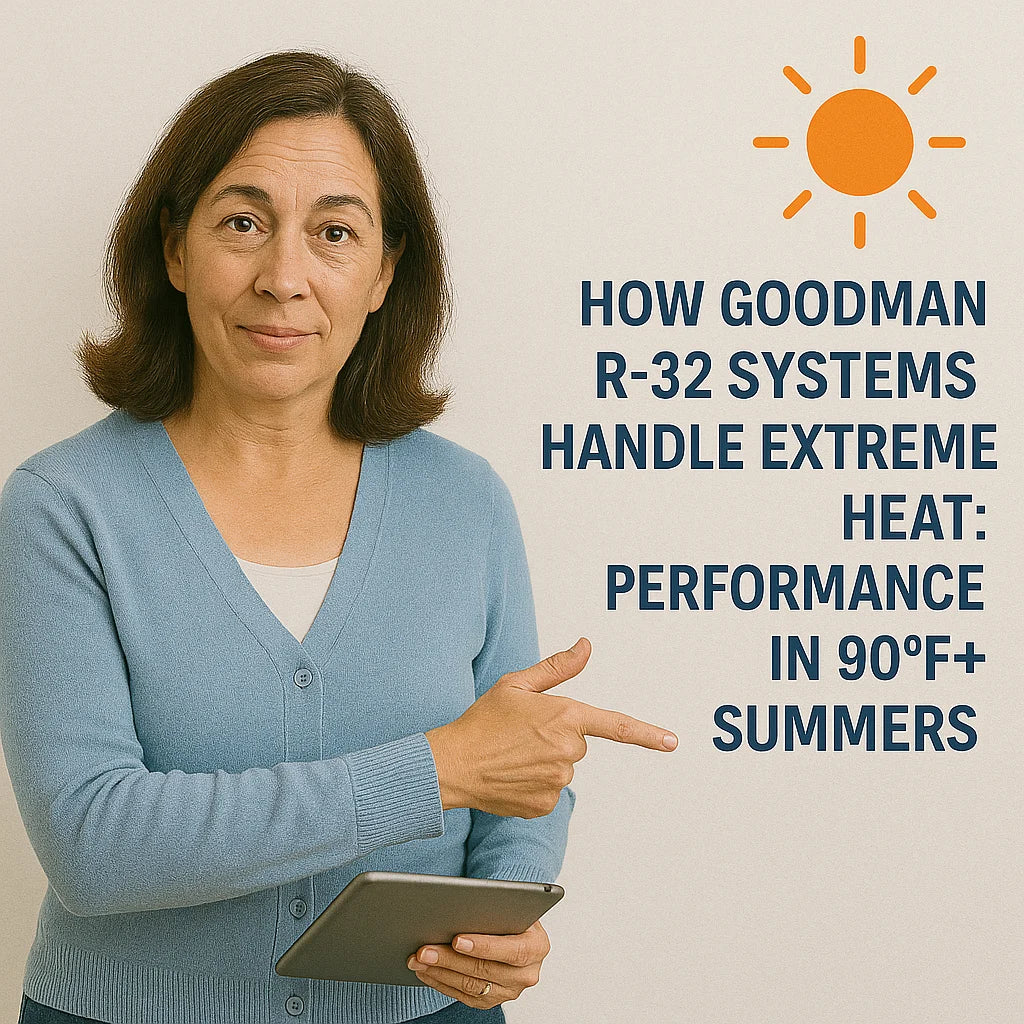
How Goodman R-32 Systems Handle Extreme Heat: Performance in 90°F+ Summers
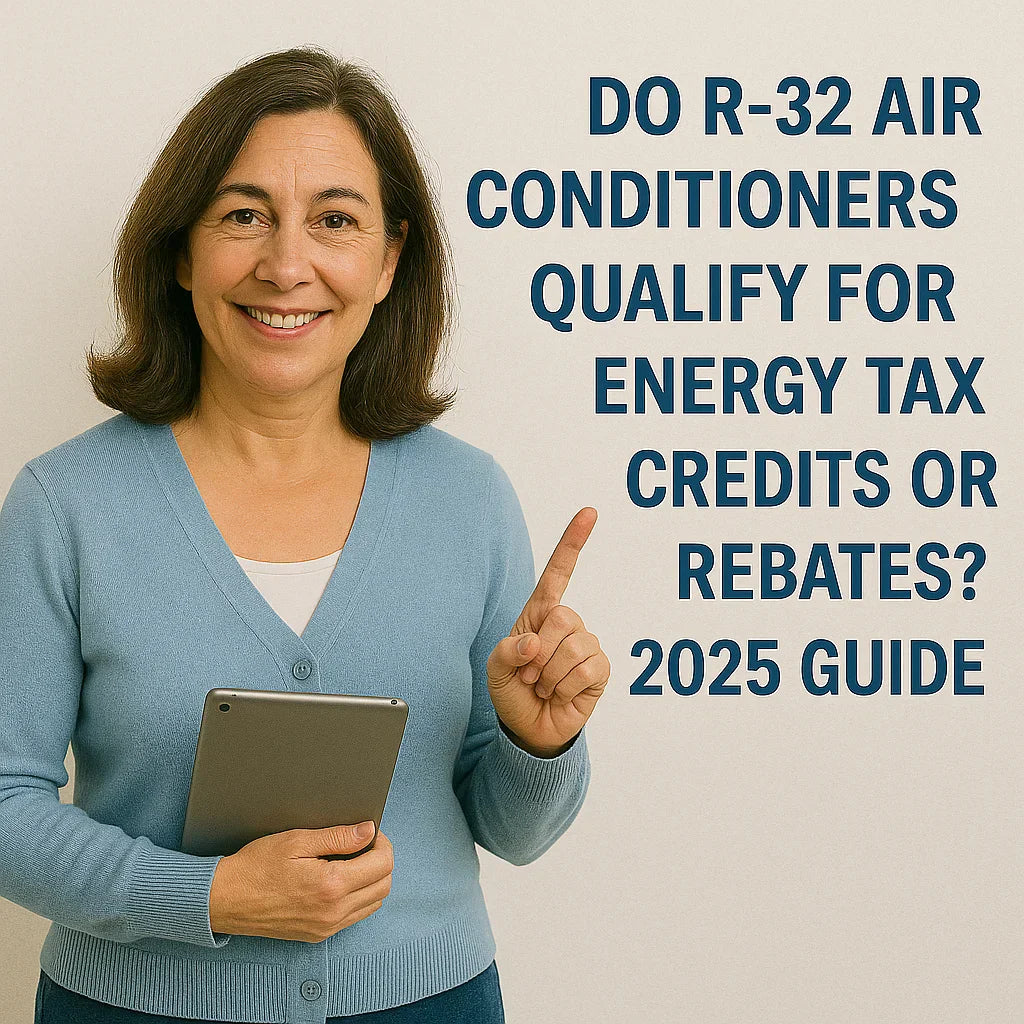
Do R-32 Air Conditioners Qualify for Energy Tax Credits or Rebates? 2025 Guide
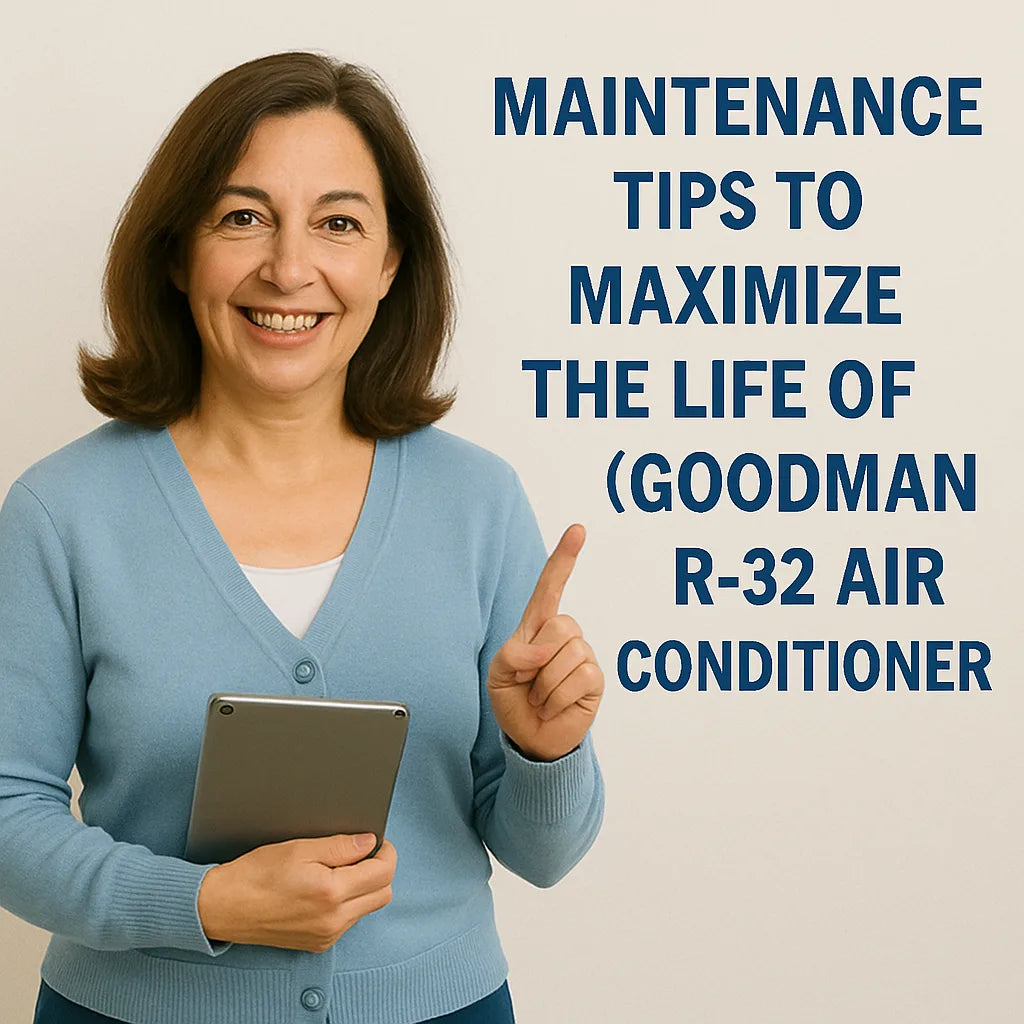
Maintenance Tips to Maximize the Life of Your Goodman R-32 Air Conditioner

Can You DIY a 3 Ton AC Install? What Homeowners Must Know (and Why Pros Are Usually Best)
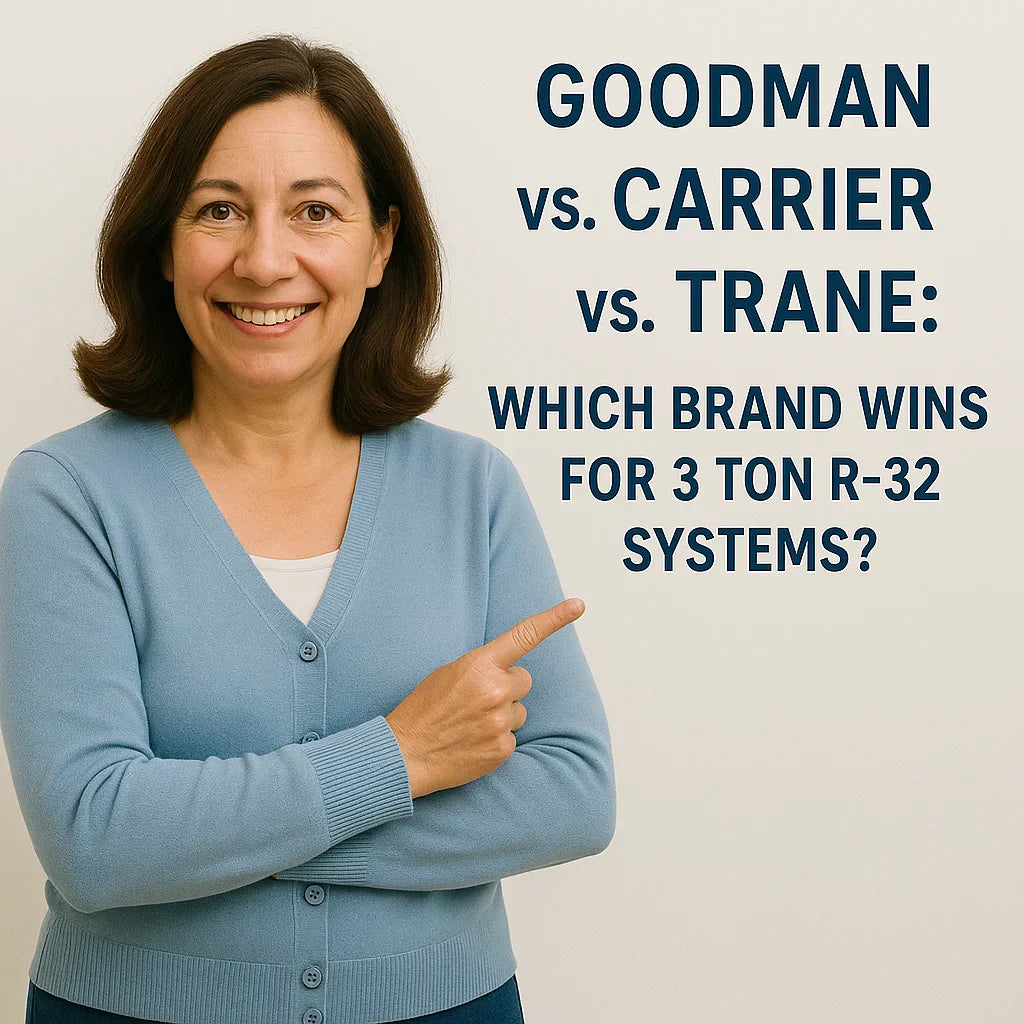
Goodman vs. Carrier vs. Trane: Which Brand Wins for 3 Ton R-32 Systems?
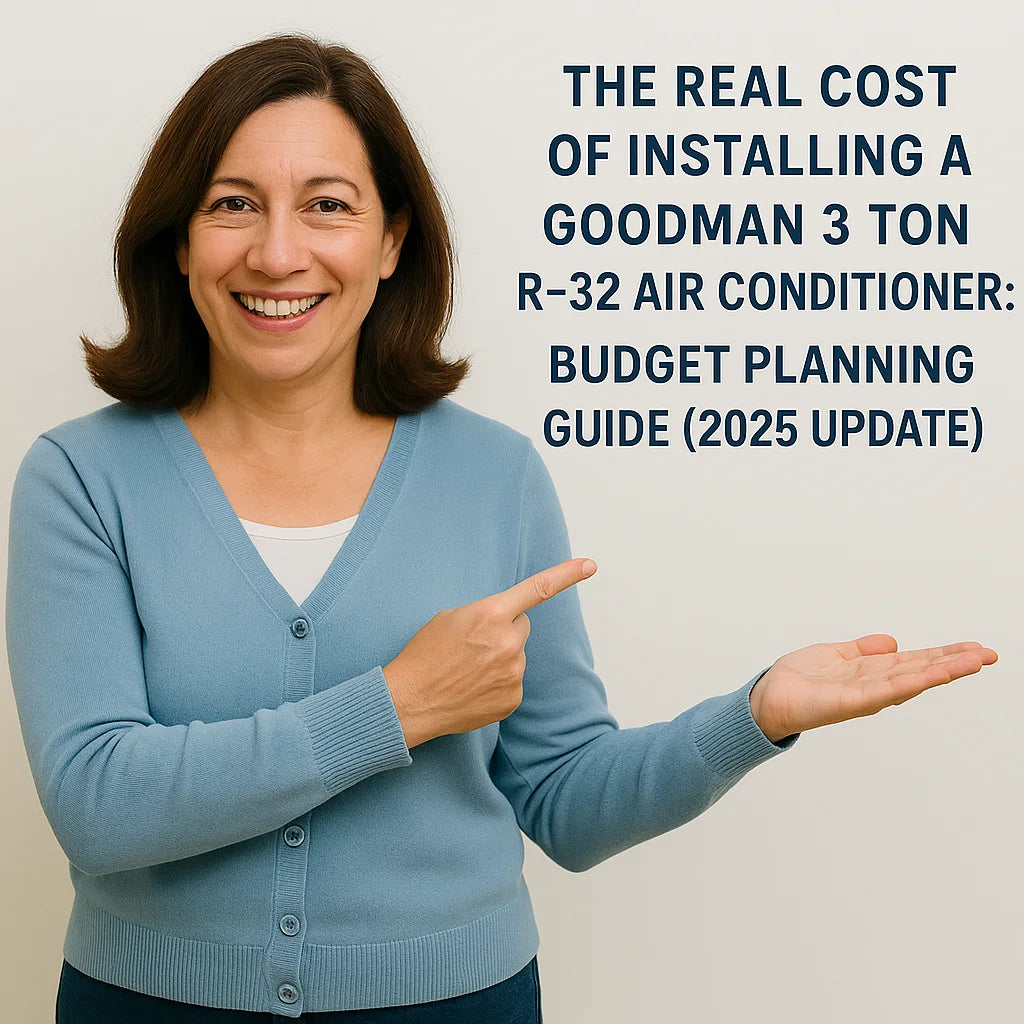
The Real Cost of Installing a Goodman 3 Ton R-32 Air Conditioner: Budget Planning Guide (2025 Update)

Is a 3 Ton Air Conditioner Right for Your Home? Sizing, Load Calculations, and Common Mistakes

SEER2 Ratings Explained: What 13.4 SEER2 Really Means for Your Cooling Bill
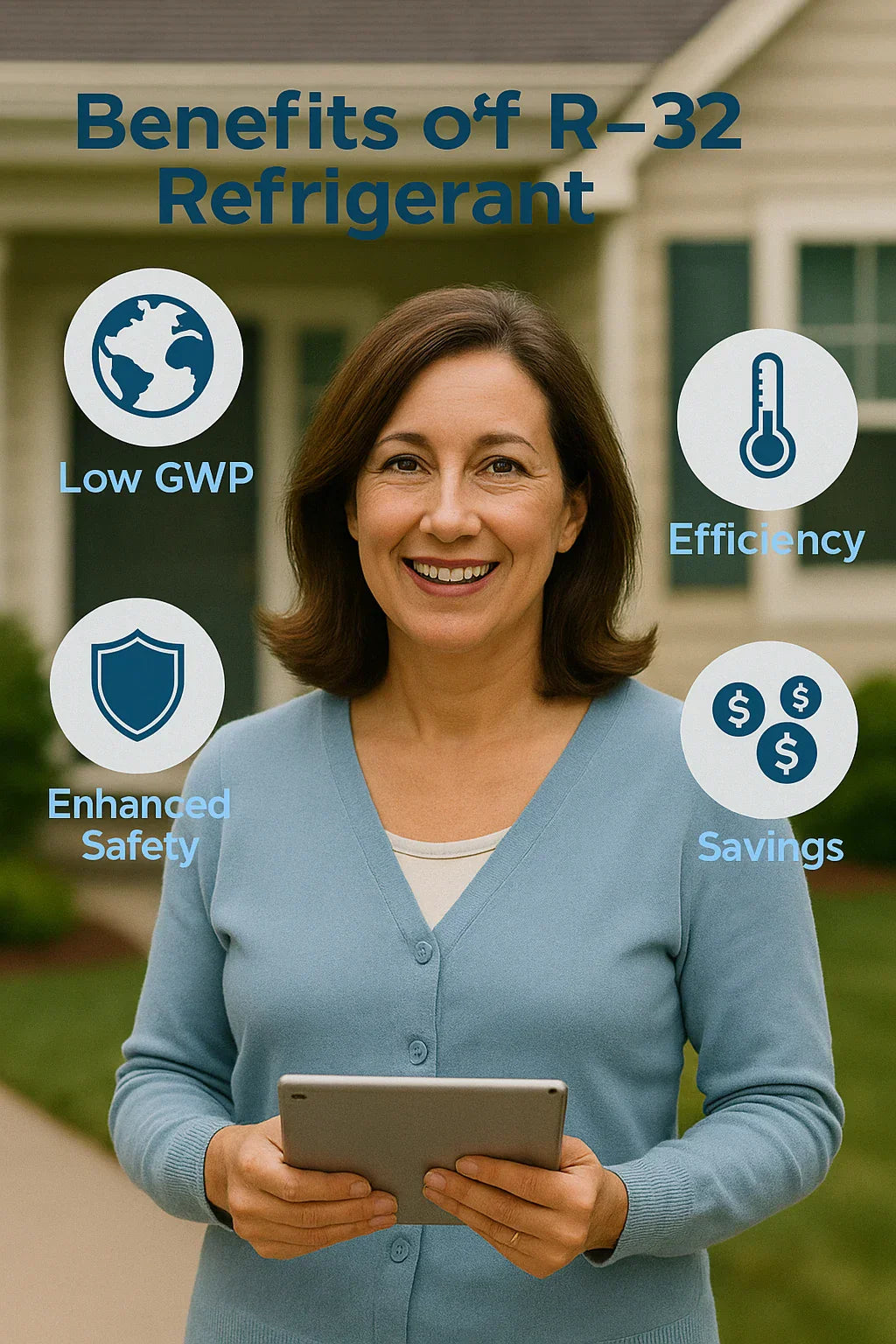
What Is R-32 Refrigerant and Why It Matters for Your Next Air Conditioner
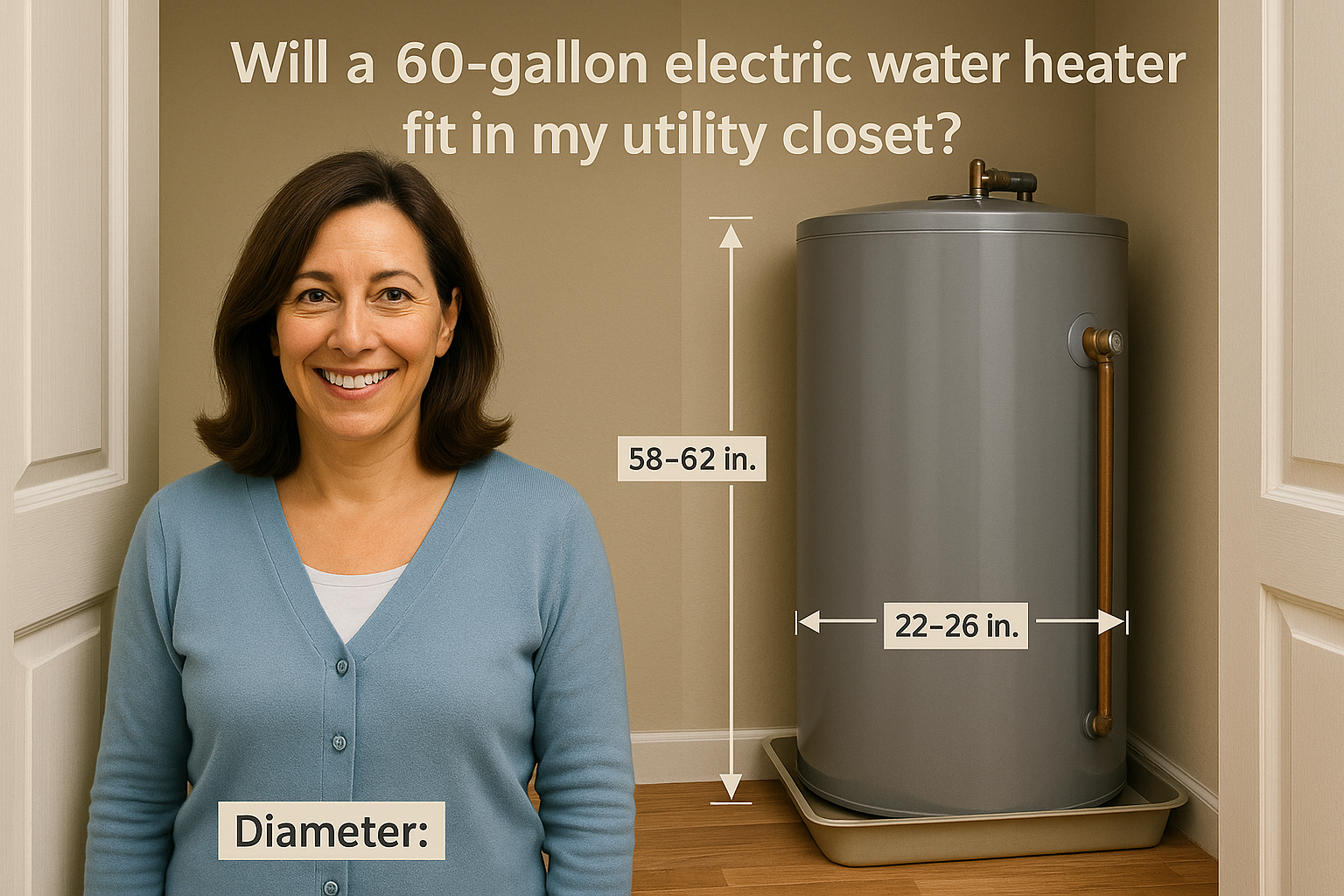
Will a 60-Gallon Electric Water Heater Fit in My Utility Closet?
One of the most important (and most overlooked) steps in choosing a water heater is making sure it actually fits in the space you have. While a 60-gallon electric unit offers great capacity, it does need some clearance to operate safely and be serviced easily.
In this guide, I’ll walk you through how to measure your space, what codes typically require, and which models work best in tight utility closets or basements.
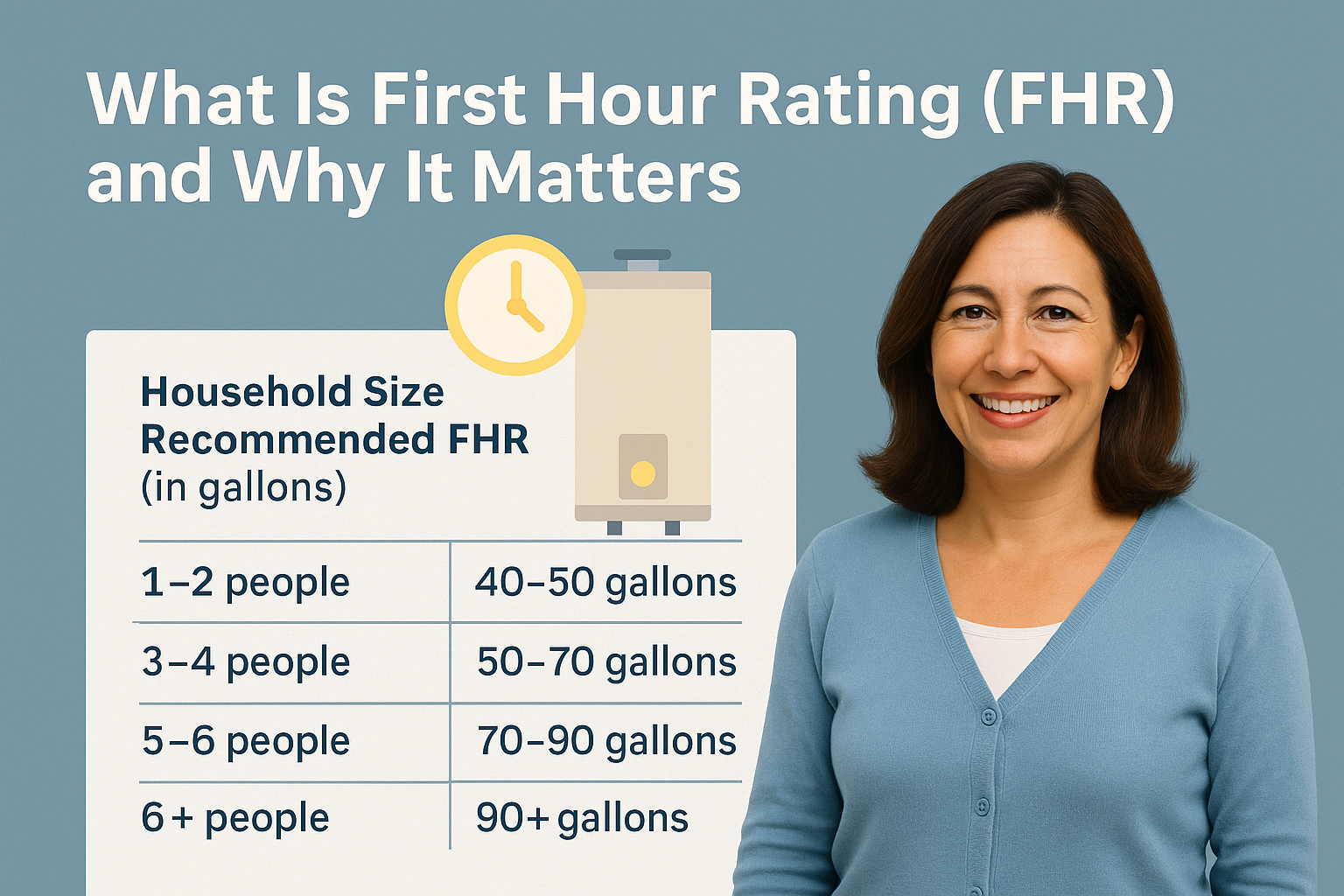
What Is First Hour Rating (FHR) and Why It Matters When Buying a Water Heater
When you're choosing a water heater, it’s easy to focus on tank size alone. But if you want consistent hot water—especially during busy mornings or back-to-back showers—there’s one number that matters more than most:
First Hour Rating (FHR).
In this guide, I’ll explain what FHR is, why it’s different from tank size, and how to choose the right FHR for your home and lifestyle.
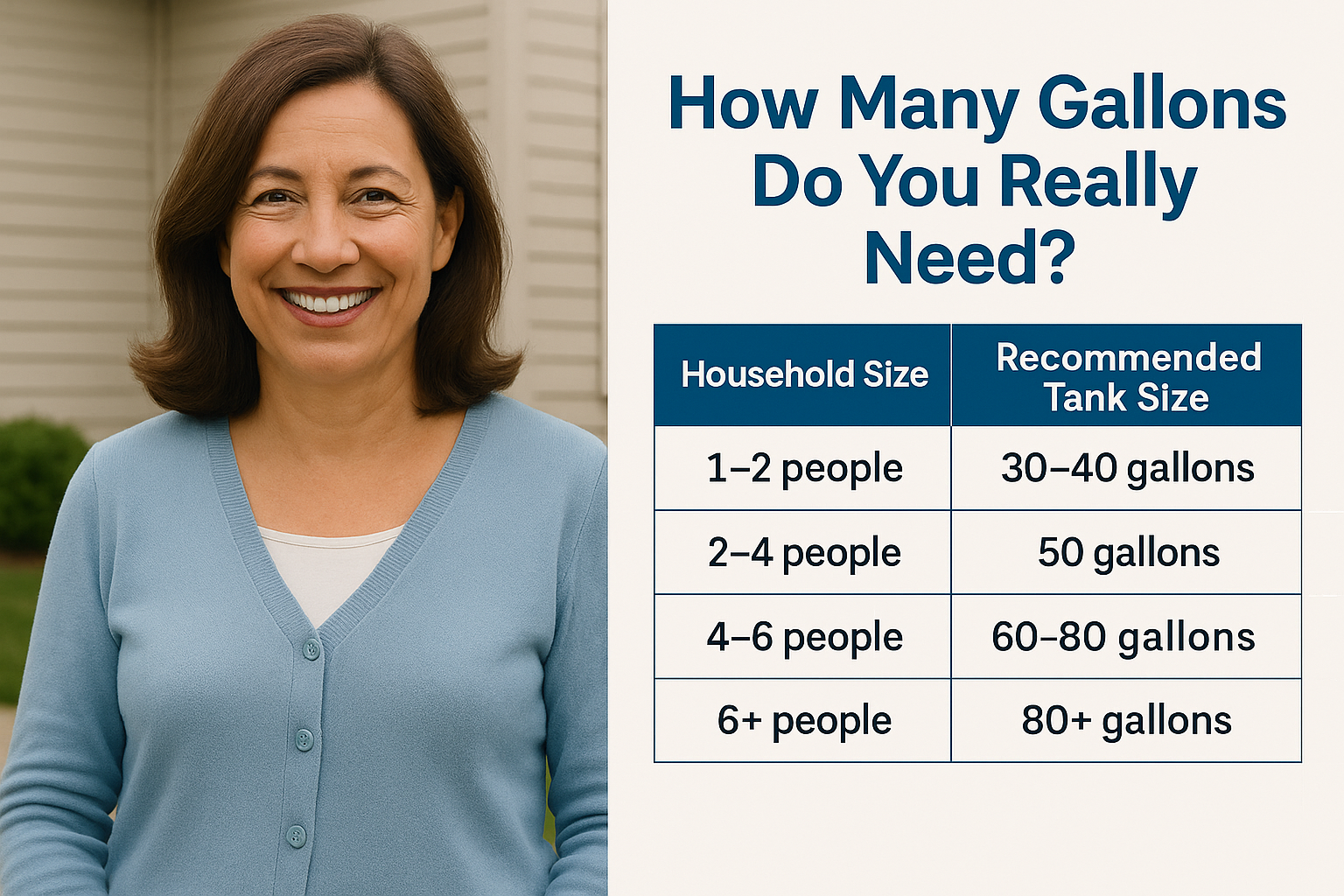
How Many Gallons Do You Really Need? Choosing the Right Water Heater Size for Your Home
One of the most common questions I get is: “Is 50 or 60 gallons enough for my home?” The answer depends on how many people live in your home and when they use hot water.
This guide breaks it down clearly—so you can choose the right tank size with confidence and avoid cold showers or wasted energy.
